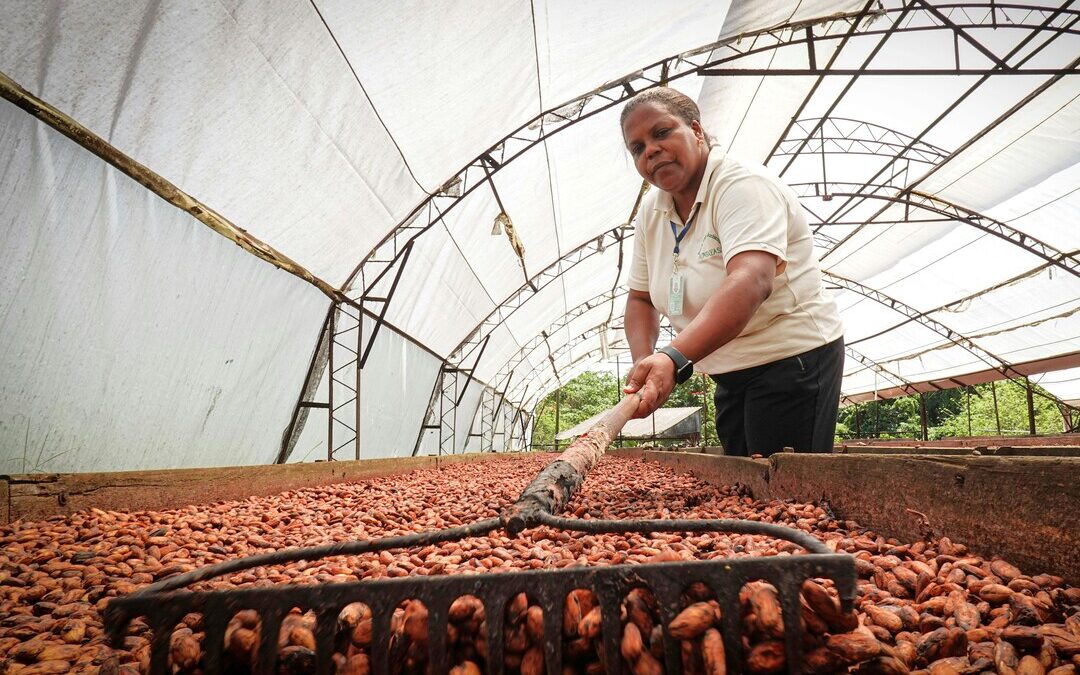CFM, SODEN to Build World’s 1st Cocoa Waste-to-Energy Plant in Côte d’Ivoire
CFM and SODEN to turn cocoa waste into clean power, supporting farmers and cutting emissions in Côte d’Ivoire.
Netherlands-based Climate Fund Managers and Ivorian independent power producer Société Des Energies Nouvelles signed a $3 million agreement to co-develop the world’s first industrial-scale cocoa waste-to-energy power plant, the company said on Tuesday.
According to a press release, the agreement aimed to transform agricultural waste into renewable electricity and deliver broad socio-economic benefits in Côte d’Ivoire.
Landmark Renewable Energy Project in Divo
The 76-megawatt Divo Biomass Project, situated in the cocoa-producing region of Divo, about 200 km north of Abidjan, is designed to generate 550 gigawatt-hours of clean electricity annually – enough to power around 1.4 million homes.
The facility will convert 600,000 tonnes of cocoa pod husks, bean shells and end-of-life rubber trees into baseload electricity for the national grid.
SODEN has already invested more than €2 million ($2.28 billion) in the project, which is currently undergoing concession negotiations with the Ivorian government. The initiative marks CFM’s first investment in the country.
Climate and Economic Benefits
Once operational in 2029, the Divo plant is projected to avoid 300,000 tonnes of CO₂ equivalent emissions annually for 30 years.
The project is also expected to create over 3,900 jobs – including 3,500 during construction and 440 permanent positions – and support 36,000 smallholder cocoa farmers with new income streams from agricultural waste.
“The Divo plant offers an innovative and scalable solution to Côte d’Ivoire’s energy and climate goals,” said Yapi Ogou, CEO of SODEN. “We’re turning a national challenge into an opportunity for sustainable growth and rural prosperity.”
EU-Backed Investment via Blended Finance
Funding for the project comes from CFM’s Climate Investor Two, or CI2 fund, supported by the European Union and focused on water, waste and ocean infrastructure in emerging markets.
The $3 million development funding from CI2’s Development Fund will support feasibility studies, permitting and the conclusion of a power purchase agreement with the state.
An additional $35 million in equity is expected from CI2’s Construction Equity Fund at financial close in 2026.
“This project demonstrates the vital role of blended finance in bringing complex, first-of-its-kind infrastructure to life in frontier markets like Côte d’Ivoire,” said Darron Johnson, CFM’s Regional Head for Africa.
Circular Economy and Agroforestry Integration
Côte d’Ivoire, the world’s leading cocoa producer, generates massive volumes of agricultural waste. For every tonne of cocoa beans harvested, over 13 tonnes of waste are discarded. The Divo project will harness this unused biomass, thereby reducing methane emissions and promoting circular economy practices.
The initiative also incorporates agroforestry and forest conservation strategies, aiming to enhance soil health and crop yields while discouraging deforestation.
The project will eliminate the need for land conversion by sourcing materials exclusively from existing waste streams and retired rubber trees.
International Support and Long-Term Vision
The project began development in 2016 and previously received a nearly $1 million grant from the U.S. Trade and Development Agency. It represents Côte d’Ivoire’s most ambitious agricultural biomass initiative to date.
“This transformative project exemplifies innovation in clean energy,” said Francesca Di Mauro, EU ambassador to Côte d’Ivoire. “It is a flagship of our Global Gateway strategy and the Team Europe Initiative on low-carbon investments.”
As part of the development process, CFM will also implement environmental and social safeguards, including a child labor monitoring system and community development plans aligned with international standards.
Also Read:
Nestlé, ofi Launch Global Cocoa Agroforestry Project to Cut CO2 Emissions
Nirmal Menon
Related posts

Subscribe
Error: Contact form not found.


